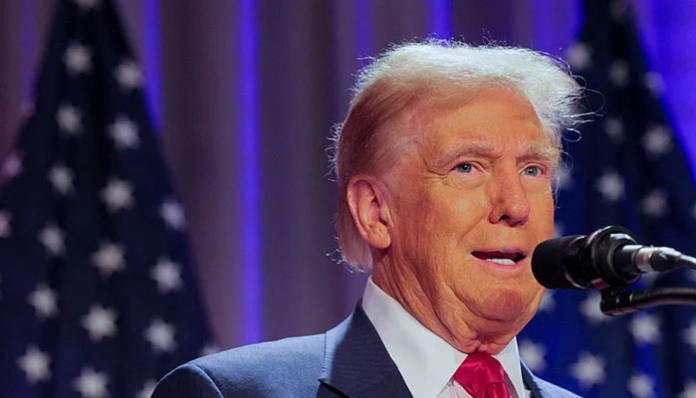WASHINGTON, 15 (DNA):President-elect Donald Trump’s transition team is planning to kill the $7,500 consumer tax credit for electric-vehicle purchases as part of broader tax-reform legislation, two sources with direct knowledge of the matter told Reuters.
Ending the tax credit could have grave implications for an already stalling US EV transition. And yet representatives of Tesla — by far the nation’s biggest EV maker — have told a Trump-transition committee they support ending the subsidy, said the two sources, speaking on condition of anonymity.
Tesla CEO Elon Musk, one of Trump’s biggest backers and the world’s richest person, said in July that killing the subsidy might slightly hurt Tesla sales but would be “devastating” to its US EV competitors, which include legacy automakers such as General Motors.
Shares of Tesla ended nearly 6% lower at $311.18, while shares of smaller EV rival Rivian closed down 14% at $10.31. Lucid, another EV maker, tumbled 5% to $2.08.
Repealing the subsidy, a signature measure of Democratic President Joe Biden’s Inflation Reduction Act (IRA), is being discussed in meetings by an energy-policy transition team led by billionaire oilman Harold Hamm, founder of Continental Resources, and Republican North Dakota Governor Doug Burgum, the two sources said.
The group has met several times since Trump’s November 5 election victory, including at his Florida Mar-a-Lago club, where Musk has also spent considerable time since the election.
Representatives of Tesla and Ford did not respond to requests for comment. GM and Stellantis declined to comment.
The Alliance for Automotive Innovation urged Congress in an October 15 letter to retain the EV tax credits, calling them “critical to cementing the US as a global leader” in future auto manufacturing.
The Trump transition team did not comment on the fate of the EV tax credit but said in a statement that the president-elect would deliver on “promises he made on the campaign trail.”
Trump campaigned on ending Biden’s “EV mandate,” without spelling out specific targeted policies. The energy-focused transition team has determined some of Biden’s clean-energy policies will be tough to end because they are popular and already funnelling money to Republican-dominated states, the sources said.
The team views the consumer EV credit as an easy target, believing that eliminating it would get broad consensus in a Republican-controlled Congress.
Trump could use the cost savings from killing the credit to help pay for the extension of trillions of dollars in tax cuts from his first term that are set to expire soon, the two sources said. Congressional Republicans plan to take up the broader tax bill as one of their first actions.
Energy transition team members expect the Republican Congress will deploy a legislative measure known as reconciliation to avoid relying on Democratic votes. Biden used the same tactic to pass the IRA.
Killing EV tax credits is strongly supported by Hamm, a long-time Trump supporter, along with the broader oil-and-gas industry.
Trump promised while campaigning to boost US oil production, even as it has hit record highs, and to roll back Biden’s clean-energy initiatives, which also include subsidies for wind and solar power and the mass production of hydrogen.

















